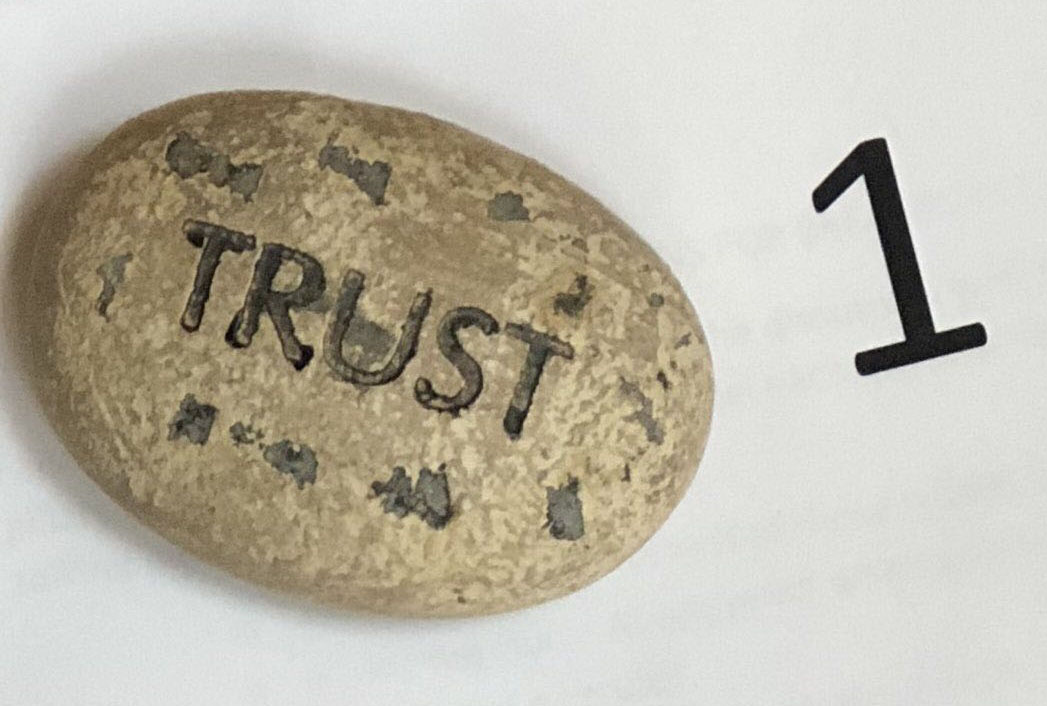
Acknowledging Harm, Recognizing Pain
2018 Safe & Peaceful grantee holds a summit dedicated to truth & forgiveness
Bringing together a diverse audience of people who have been touched by violence as a victim, committer or observer, the Truth & Reconciliation Summit was a moving, daylong event that highlighted the power of acknowledging harm as the first step toward recovering from its lasting effects.
Produced by the Darren B. Easterling Center for Restorative Practices, with funding support from the Chicago Fund for Safe and Peaceful Communities, the Summit attracted nearly 100 guests, from justice-involved youth to octogenarians.
Lisa Daniels founded the Center in the memory of her son, a victim of gun violence whose murder propelled her into victim advocacy work.Vowing to not allow the circumstances of her son’s death to forever define his legacy, Daniels has worked to provide grief and support counseling to families, called for understanding around sentences for youth offenders, and recently accepted a gubernatorial appointment to the Illinois Prison Reform Board.
At the July 20 summit, she said told the audience that she hoped that “this is not the last day that you’ll come together and be forever changed.”
Heavily inspired by the forgiveness work of South African cleric and theologian Bishop Desmond Tutu, the event featured a panel discussion of people personally affected by violence; a peace circle experience; mindfulness yoga; celebratory music portions; and a closing session during which individuals apologized publicly for harms their systems, or they themselves, had caused. Below are excerpts of some of the apologies.
Chicago Police Department sergeant
“Policing is what I do. It’s my profession, a needed profession. [But] while being a police officer, I get a chance to show my many hats, as a deacon, a grandson and husband and a father…. I understand the history of the police department. [I offer] apologies for what has happened in the past…and in the present, apparently…but I can be a part of the solution. I can actually make a difference. I am a part of the community.
As a deacon in this community, I have failed. I have said on numerous occasions that the problem we’re having in our community is the people of faith [are] failing to open our doors to people who need resources, who need a prayer, who need a listening ear.”
School principal
“I am a coach, mentor, mother, sister. Our education system has failed our kids, and I do apologize for that. We have to change that, and that’s through our vote. We can change the system: Our kids deserve it.”
Law Office of Cook County Public Defender attorney
“I am a Chicago Public School high-school graduate. A suburban resident. A single parent. A widow. I apologize for the lack of using our [legal] voice publicly on the abuse of power….We are now joining our voices with others to create an awareness of the reality that many face in their interactions with the authorities. We are committed to change.
We have licensed attorneys and paralegals who will be available to any individual detained in any county police station; once a call is placed, one of the attorneys will be there to help an individual assert his or her rights. Communities must know that we are available and help us spread our telephone number. The Law Office of the Cook County Public Defender is committed to systemic change, to using our voice.” (Editorial note: The assistance phone number is 844-817-4448.)
Justice-involved youth
“I apologize to the public [and ask you to] keep the word ‘hope’ in your mind.”
Corrections professional
“I apologize for our system — for our incarceration of African-American males, the mentally ill, the homeless. We have not corrected the problem, and many times, we’ve made it worse. Lots of lessons learned over the years, but sometimes as a system, we’ve repeated the same mistake, the same mistake, the same mistake. I will commit to being a part of a systems change with what God’s given me.”
Homeless service provider
“I apologize for homelessness in our city, our state and our country, for every person who has no place to lay their head tonight. I apologize for being in a service industry for 25 years and still not resolving the issue of homelessness. I am committing to staying in this fight to ending homelessness, not only in this state, but in this state and in this county.”
African-American male youth worker
“I apologize to LGBT…young black men and not taking the time to get educated on the diversity of black men.”
African-American male
“I apologize to children who have been neglected, exposed to violence, alcohol, drugs…for seeing other people engaged in behaviors and activities who asked me for advice, but because I didn’t want [to] push back, I chose to keep quiet. I apologize for keeping quiet when I should have spoken up. For misogyny…for propagating the idea that women are weaker than men or less capable than men. I promise to get up and admit my own errors as opposed to pointing the finger.”
Caucasian male
“I’m a white guy.I apologize that where I live people don’t care enough. I apologize that I helped with donations but didn’t care enough until I lost my own son. I apologize that the communities are dealing with the problems the best that they can and that some of the other institutions are not doing everything they can, and we all know when someone’s not doing everything they can.
[I apologize] That not a lot of people are afraid to come down to some of the areas where there is a lot of crime. I apologize that “P people” – privileged people – just don’t care enough. And in my late, belated efforts, I’m going to do everything I can to make people care and understand.”
This is a story about the Community Safety and Peace strategy of the Partnership for Safe and Peaceful Communities.




